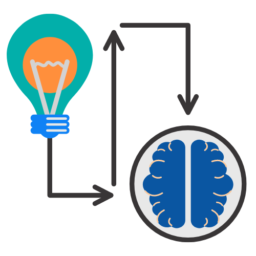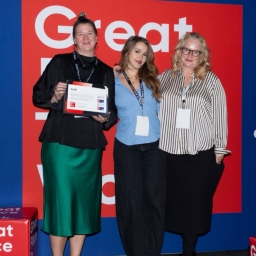Corporate training often focuses on skills, performance, and efficiency—but at its core, it’s about people learning and growing. At ELAM, where we specialize in corporate language training, we’ve seen firsthand how the psychology behind learning can make or break the success of any program. Language learning, in particular, offers unique insights into how adults learn in the workplace—insights that can be applied across all areas of corporate training.
1. Motivation Over Method
One of the most consistent takeaways from our work at ELAM is this: learners stay engaged when the training feels personally or professionally relevant. Whether it’s communicating more effectively with international clients or preparing for a new role, internal motivation is a stronger driver than the format of the class itself. This means corporate learning should always be tied clearly to real-world goals employees care about.
![]() 2. Safe Spaces Encourage Growth
2. Safe Spaces Encourage Growth
Language learning often involves trial and error—and doing that in front of colleagues can be intimidating. At ELAM, we prioritize on creating a supportive and encouraging environment so learners feel comfortable making mistakes and trying again. That sense of security, where people feel seen and supported rather than judged, is essential in any training setting. When employees aren’t afraid to fail, they’re much more likely to succeed.
3. Progress Builds Confidence
Fluency doesn’t happen overnight, but small, visible improvements—like holding a longer conversation or understanding a business email—can be incredibly empowering. ELAM’s programs emphasize progress tracking, not just final outcomes. This reflects an important truth: learners thrive when their efforts are acknowledged and celebrated. Whether it’s language or leadership, confidence grows with every milestone.
4. Learning Is a Social Experience
Language training is inherently interactive. From group discussions to partner exercises, it creates space for connection and collaboration. We’ve found that these shared experiences often translate into stronger workplace relationships and team dynamics. Corporate training programs benefit from this approach—encouraging peer interaction, discussion, and community can dramatically improve retention and engagement.
![]() 5. Flexibility Fuels Adult Learning
5. Flexibility Fuels Adult Learning
Busy professionals need learning to fit into their lives—not the other way around. At ELAM, we offer flexible scheduling, virtual options, and tailored programs that respect each learner’s pace and priorities. This autonomy is essential for adult learners, and it’s a principle that should guide all forms of corporate training. The more adaptable the experience, the more likely it is to succeed.
Final Thoughts
Language learning is more than a skill—it’s a personal journey that teaches us how people learn and grow at work. At ELAM, we see every day how empathy, motivation, support, and flexibility empower learners to grow. These lessons go far beyond the classroom.
Whether you’re teaching a new language or new software, understanding how adults learn is the first step to creating a stronger, smarter, and more engaged workforce.


 2. Safe Spaces Encourage Growth
2. Safe Spaces Encourage Growth 5. Flexibility Fuels Adult Learning
5. Flexibility Fuels Adult Learning













